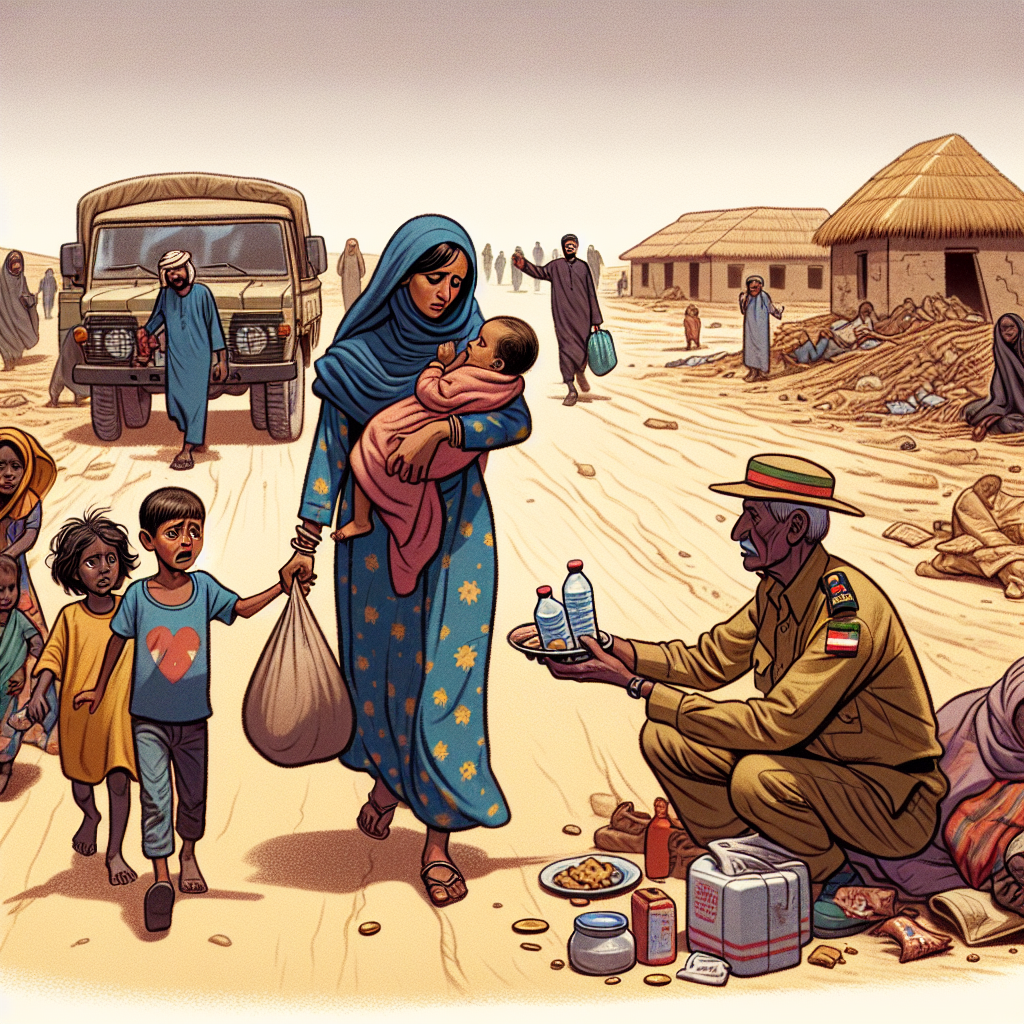Sudan's Rapid Support Forces (RSF) have been found responsible for widespread sexual violence, including gang rapes and the abduction of victims under conditions akin to sexual slavery, according to a new report from the Independent International Fact-Finding Mission for Sudan. This report, which builds on findings presented to the Human Rights Council in September, emphasizes the urgent need to protect civilians amidst the ongoing conflict between the RSF and the Sudanese Armed Forces (SAF).
The report outlines that there are reasonable grounds to believe that the actions of the RSF amount to war crimes and crimes against humanity. These include torture, rape, sexual slavery, and persecution based on intersecting ethnic and gender identities. While the SAF and allied armed groups were also implicated in some cases, the report highlights that the majority of sexual and gender-based violence has been committed by the RSF, particularly in Greater Khartoum and the states of Darfur and Gezira. The violence is characterized as part of a deliberate campaign to terrorize civilians perceived to be connected to opposition groups.
“The sheer scale of sexual violence we have documented in Sudan is staggering,” said Mohamed Chande Othman, Chair of the Fact-Finding Mission. “The situation faced by vulnerable civilians, especially women and girls, is deeply alarming and requires immediate attention.”
The report details various forms of sexual violence against women, including rape, gang rape, sexual exploitation, and abduction, often occurring in the context of military assaults on cities, displacement sites, and urban occupations. In Darfur, perpetrators used firearms and knives to intimidate victims, often in front of family members, while subjecting them to beatings and threats.
Men and boys have also been targeted for sexual violence while detained, experiencing rape, threats of rape, and other forms of abuse. The Fact-Finding Mission concluded that the actions of the RSF and its allied militias constitute serious violations of international humanitarian law, highlighting that such acts are not only inhumane but also undermine personal dignity and life.
The abduction and confinement of women and girls for sexual purposes are deemed acts of sexual slavery, depriving victims of their liberty and subjecting them to the control of the RSF. Joy Ngozi Ezeilo, an expert member of the Mission, stressed the urgency of protecting individuals from sexual and gender-based violence in Sudan, emphasizing the need for accountability to break the cycle of violence.
The report also details a rise in other human rights violations and humanitarian law breaches, with about a quarter of Sudan’s population displaced and exposed to severe abuses, including sexual violence. Many medical facilities are inoperable due to destruction or occupation by warring factions, leaving victims with few options for medical care, psychological support, or legal assistance. Stigma and victim-blaming further complicate the plight of survivors.
Mona Rishmawi, another expert member, pointed out that the responsibility for these heinous acts lies solely with the perpetrators. She called for an expansion of the International Criminal Court’s jurisdiction over all of Sudan and the establishment of an independent judicial mechanism to ensure that those responsible for these atrocities are held accountable.
The report urges the establishment of a dedicated support and reparations office for victims of sexual violence, noting the dire need for medical and legal assistance, which is currently unavailable. The ongoing violence against civilians in Sudan highlights the critical need for urgent protective measures, including the deployment of an independent protection force.
Othman emphasized, “There is no safe place in Sudan now,” underscoring the necessity for immediate action to safeguard civilians and facilitate humanitarian assistance in the conflict-stricken nation.











